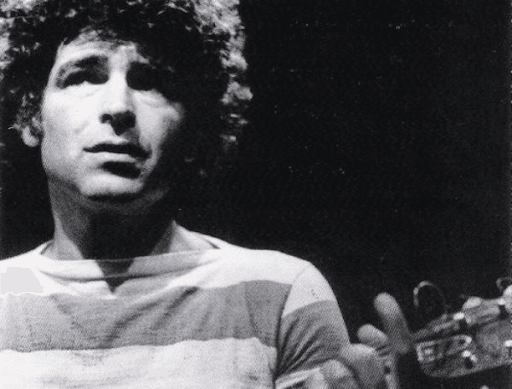Since starting Nu Magazine—a Jewish culture magazine—I have often been asked what we mean by Jewish culture. I have my ready-made response: We will discuss Jewish literature, film, thought, food, and so on. That said, I sometimes struggle to understand what makes these things Jewish besides the fact that they were made by Jews.
Fortunately, there are many thinkers who make the topic of Jewish cultural identity central to their work. This article is the first in a series that will profile various thinkers and pose to them the question “What’s Jewish Culture?”.
Our first interviewee, Professor Christopher Silver, is an Associate Professor in the McGill Jewish Studies Department. He researches modern North African Jewish history with a focus on the region’s music. I met with him in his bright Leacock office, lined with books in English, Hebrew, and Arabic, to discuss North Africa’s Jewish history and why music is a powerful medium to understand people and culture.
Silver, originally from Los Angeles, never expected to become an academic—getting into UC Berkeley for undergrad was a “coup in and of itself.” After graduation, he worked and traveled to Morocco and Egypt while recreationally studying North Africa’s music industry during the first half of the 20th century. His undergraduate advisor encouraged him to pursue a PhD, which he embarked on in 2012 and has since led to a rewarding academic career.
Jewish communities have existed in North Africa for at least 2,500 years, Silver explained, and by the 1950s, the Jewish population numbered over half a million. What fascinates him, however, is the role Jews played in the region’s music.
“Music is very important to me, and music was a very important part of life in North Africa [...] Jews played a significant role in the promotion of new forms of music and [creating] a certain fidelity [for] older music which speaks to medieval Islamic Iberia and al-Andalus,” said Silver, referring to modern-day Spain under Islamic rule where many North African Jews descended.
For Silver, his research has shown him that Jewish culture is anything but homogeneous. He explained that one of the key ways Jewish cultures become distinct is in the communities’ ability to “embed themselves” within the majority culture while preserving their religious traditions. Nowhere is this more evident than in music.
“Even these domains that we treat as separate—the sacred and the profane or Hebrew liturgical music and Arabic popular music—they converged all the time,” he recounted. “Arabic popular music crafted by Jews and Muslims, those melodies found their way into North African synagogues. To this day, in Montreal, Toronto, and other places, you can hear Arabic popular music during a Saturday morning service.”
Despite the lasting importance of music in the lives of North African Jews, most historiographical narratives are devocalized. “We need to reanimate the soundtrack of Jewish life with all of its complexities—which wasn’t just Klezmer music,” Silver explained.
Nearly 25% of Montreal’s Jewish community is Sephardi, principally of North African descent. However, in the same way that music is neglected in historical discourses, Sephardi culture, history, and music is often overshadowed by Ashkenazi-dominated conceptions of Jewish culture and history in Montreal.
“It can feel difficult to live in a world of Jewish cultures—in the plural. How do you square the circle, when there is a desire to do it without the plural? [...] But that’s our job,” he said, embracing the challenge.
Throughout our conversation, I found myself reflecting on my own views of Jewish culture. The world Silver described is different from my overwhelmingly Ashkenazi upbringing in Toronto, filled with Theodor Bikel, Manischewitz, and chicken soup. Silver’s stories of tradition and change that are held in music, however, underscore that despite differences among Jewish cultures, our ability to adapt while staying true to our religion and traditions remains universal.
One of Silver’s students made an impromptu office hours visit, so we wrapped up our interview. Before I left, I asked him for a music recommendation—ideally available on Spotify. Silver said that he’s “wholly opposed to Spotify,” preferring the “materiality” of a record but recommended Salim Halali, “an Algerian-Jewish musician of few equals.” He suggested the song “Andalousia” (It’s available on Spotify!).
Powered by Froala Editor






